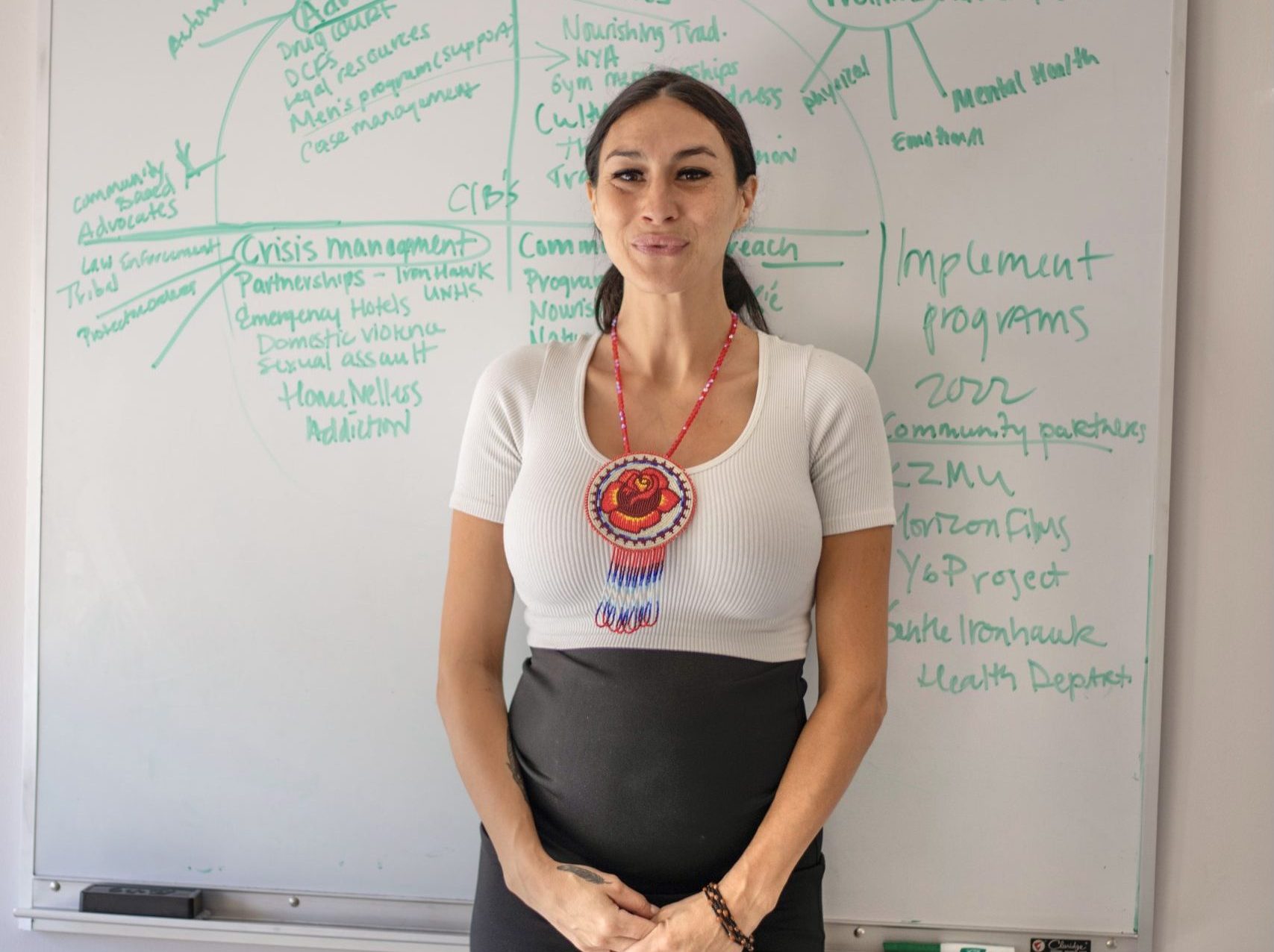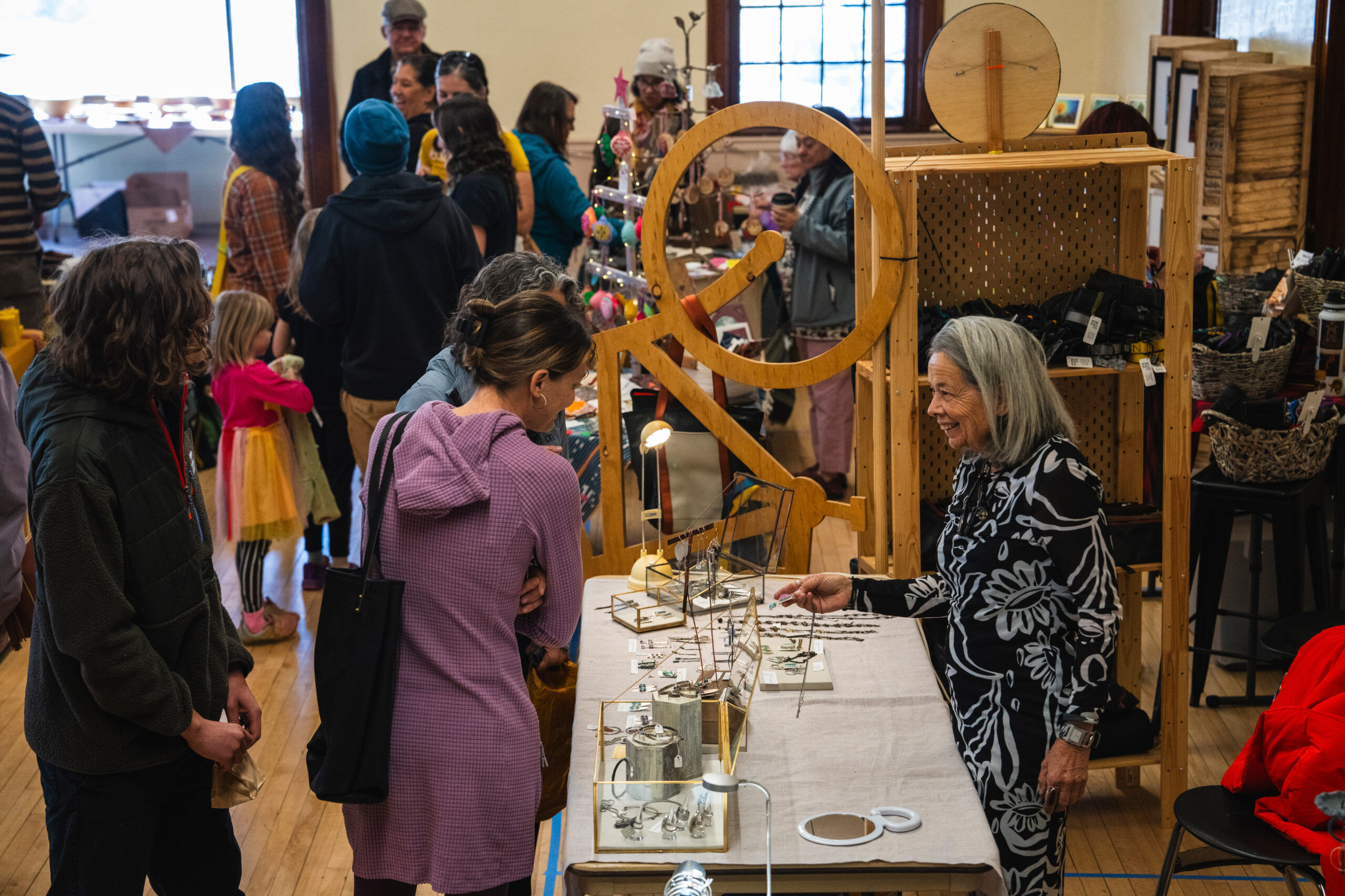Some information may be outdated.
The west building at the prior Utah State University Moab campus is mostly empty rooms. But soon, it’ll be a bustling hub of activity as the new home for the Full Circle Intertribal Center: Kristen Ramirez-Marsh, executive director of FCIC, said there will be four offices, a kitchen, a conference room, a room specifically dedicated to crisis advocacy, and another dedicated to Native youth.
“We have been displaced so many times,” she said. “We are the first Native-led nonprofit ever to exist in Moab, and it’s paramount to be able to have a space that’s ours.”
In the new building, the FCIC can operate at full capacity. It’s been a tricky two years throughout the pandemic, especially since the nonprofit didn’t have a central space: they were bouncing all over the place, Ramirez-Marsh said, meeting crisis clients in parks, and working out of the Grand County Public Library and the Moab Arts and Recreation Center.
She hopes, and expects, that the FCIC can move operations into the new building by the end of August.

The process for acquiring the building started when the USU campus was bought by the Moab Free Health Clinic—Ramirez-Marsh said Doug Caylor, executive director of the health clinic, asked her if she’d be interested in moving to the campus to be part of a resource enclave. Other nonprofits, including the Arches Education Center, will also move onto the campus.
The FCIC’s official mission is to “nourish healing through our Native American traditions and cultures,” and it does this by offering crisis management and advocacy; youth programs through the Native Youth Alliance; Native community dinners and youth mentorship through the Nourishing Traditions program; Certificate of Indian Blood paperwork (the FCIC is the only place to do so between Grand County and the Navajo Nation); men’s and women’s groups; wellness packages; and food deliveries—these programs all developed as tangents of each other, Ramirez-Marsh said, as the nonprofit responded to the needs of the local Native community.
“The Native population in Grand County is insane—we’re very abundant,” she said. “I don’t think people realize how many Natives are here.”
The new building, Ramirez-Marsh said, will be able to house all of it.
There will also be space for more staff members: Ramirez-Marsh is in the midst of bringing on new crisis advocacy staff. There’s enough space for private offices, one of which will be hers. The nonprofit also recently brought on two new board members—now, the board consists of six people. She hopes that with more staff, the FCIC can strengthen its community outreach.
“As Natives, kinship is the foundation of who we are,” she said. “So even if we’re in crisis, to be able to come over and share a meal with 40 other Natives, who speak your language, who cook traditional foods—you’re not worrying about making rent next week. You’re just there healing.”
The FCIC feeds 60 to 100 people a month, she said, and she hopes that number will increase.

Ramirez-Marsh is most looking forward to the stability the building will offer to crisis clients—the building is private, with a discreet parking lot—and to the Native Youth Alliance. She’s excited to show her clients and the youth, especially those who have been with the FCIC since its humble beginnings in an office in the library, what the nonprofit has achieved.
Plus, she has more plans to expand staffing and programming, she said—she wants to use the space to start an internship program, a language program, host seminars with Natives from around the state, and offer cultural competency workshops to businesses around Moab, for starters.
“I just think that Natives in our community are under the impression that we can receive services, but we can’t actually be the ones writing grants or being the governance of an establishment like this,” she said. “So it’s a big deal.”
The building isn’t empty in Ramirez-Marsh’s eyes: she’s already planned to knock out a wall and redo some of the floors; she’s picked out furniture for every room and knows which rooms to paint, and in which colors; and the official building sign is coming soon too, she said. She breezes through the hallways, already at home. Ramirez-Marsh stands in the room that will soon be her office and sees everything the nonprofit will become.
Keep up with the FCIC’s events and programs through their website: www.fullcircleintertribalcenter.org and social media @fullcircle_intertribalcenter.
Appreciate the coverage? Help keep local news alive.
Chip in to support the Moab Sun News.





